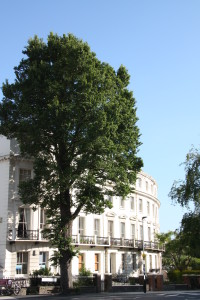The council’s tree planting programme was given a last minute reprieve last week after the council approved next year’s budget.
The council’s tree planting programme had been slated for the chop, a cut which would have saved £80,000 a year. However, after a deal between the Green councillors and the Labour party tree planting is safe for another year.
However, this is only a stay of execution. The compromise deal only defers this cost cutting proposal and the programme will still be vulnerable to cuts in next year’s budget negotiations.
Axeing the tree planting programme would have a dramatic effect on streets in our area. In the 2013-14 season the council planted 274 trees throughout the city, partly to replace trees lost through storms, the ravages of Dutch elm disease and old age.
In the storms of October 2013 and February 2014 90 mature trees were lost. While in 2013, which was a typical year, 285 trees had to be felled because of Dutch elm disease.
The council had a choice of three budgets. One, supported by the Greens, proposed a council tax rise of 5.9 per cent. Labour supported a tax rise of 1.99 per cent and the Conservatives a tax freeze. As previously reported in this month’s newsletter all three budgets were heavily defeated in votes at the council meeting in February.
Both the 1.99 per cent rise and the freeze budget proposed cutting all tree planting, which would save £80,000 in a full year. A Conservative attempt to amend the freeze budget to save the tree planting programme was also heavily defeated.
The final compromise, which was approved at a council meeting on 3rd March, amended the 1.99 per cent budget, and saved tree planting for next year by making cost savings elsewhere.
But the tree planting programme is likely to be a prime target for the axe in next year’s budget. According to the budget papers prepared by officers for councillors the prospect of further cost savings was part of the rationale for the cut. They say “street trees…damage highway structure and street cleansing”.
The officers seem to envisage a tree-free city. “These [costs] would decrease over time as the number of trees declined.” They concede that this will have an impact on the street scene.




